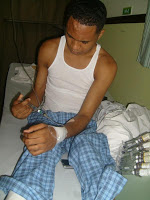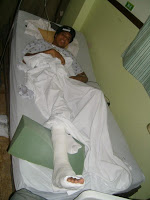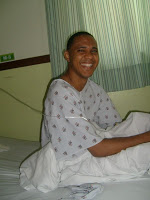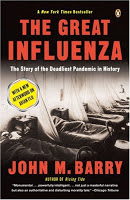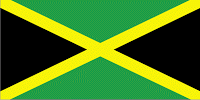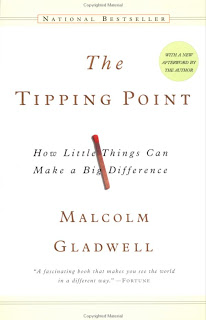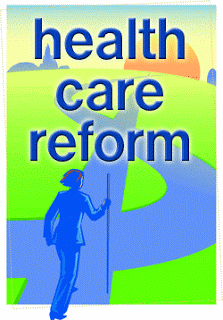Laurie Kelley
April 4, 2010
Jamaica conjures up images of sun-drenched beaches, rum drinks, and dreadlocks, and sounds like reggae and steel-drum bands. It’s a beautiful Caribbean island made famous by Port Royal, dubbed the wickedest city in the world and frequented by the Caribbean pirates in the 17th century—yes, there really were pirates of the Caribbean and Jamaica was their favorite hangout.
Port Royal is now a desolate tourist site, and like many developing countries around the world, Jamaica has its share of economic woes. Still, I had a wonderful four-day visit to Kingston, the capital, this past week, to assess hemophilia care.
Why Jamaica? We have had requests for factor donations from Jamaica on and off through the past nine years. Just a handful of patients. But last year the number of requests jumped, causing us to take notice. Then last summer, two young men, one age 17 and one age 22, died. The younger of the two, Kemar, had called me from his hospital bed to thank me for the factor donation. He died three days later.
That was the sad catalyst that made me decide to come to Jamaica. I was very pleased when long-time friend and colleague Derek Robertson, a Jamaican who lives in Virginia and has worked with NHF, Gulf States Hemophilia Center and Hemophilia Alliance, decided to join me.
See all photos from the trip here!
I carried with me about $90,000 worth of factor concentrate, which ended up on its own trip in Miami somewhere. I pretty much arrived last Monday evening with the clothes on my back and nothing more
Still, I was grateful to have arrived and to be met at the airport by Derek’s brother David, a pilot, who made sure I safely arrived at my hotel.
Tuesday
There wasn’t much to do but wait for the bags and Derek. Derek arrived the day after me, on Tuesday, and we picked up a car rental. Adopting many British customs, everyone drives on the left here. We visited his mother, aunt and family members. They provided a wonderful Jamaican lunch for us, including rice and peas, and ackree, the national dish. It was delicious!
Wednesday
Derek and I went for our first official visit, to the Blood Bank to see Dr. Jennifer Thame, a hematologist who Derek knew years ago when he worked with Gulf States. You see, Gulf States and Jamaica were twinned as part of the World Federation of Hemophilia program many years ago. Dr. Thame explained the health care system and how most patients would be treated at the Kingston Public Hospital (which we did not tour on this trip), where care is free. Those patients with insurance could go to University Hospital of the West Indies (UWI). 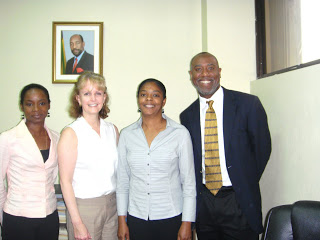
There are about 290 patients with hemophilia in Jamaica, and almost all of them are registered, so that’s a plus. The big minus is that there is no factor. Almost no one gets factor. We only heard of one couple who purchases it. Outside of Kingston, there are referral hospitals, and some patients go to them.
Dr. Thame was very interested in helping the patients more and pledged to stay in touch. First, she helped us enormously by making a call to the health ministry to get our factor released from customs.
Everyone was bemoaning the terrible drought Jamaica has been suffering but there was none that afternoon as the clouds burst and we were soaked in a downpour. Bad hair day for me! Caught with no umbrella, we made our way to the Ministry of Health to get a certificate that would release the factor. With that in hand, we proceeded back to the airport and waited and waited. With some paperwork and a brief interrogation, the factor was released!
 Back to the car and then off to Radio Jamaica (RJR), where Derek and I were interviewed about our work. Earl, the announcer, asked excellent questions about hemophilia, how healthcare in Jamaica tackles it and what it takes to improve the situation. Derek and I both stressed how the price of clotting factor is prohibitively expensive for countries like Jamaica and part of improving care is finding a way to lower that price. It was fascinating to see how radio broadcasts are done, and Earl, Derek and I engaged in a lively discussion about American politics and health care. Lest we forget, the rest of the world watches US policies and politics very closely!
Back to the car and then off to Radio Jamaica (RJR), where Derek and I were interviewed about our work. Earl, the announcer, asked excellent questions about hemophilia, how healthcare in Jamaica tackles it and what it takes to improve the situation. Derek and I both stressed how the price of clotting factor is prohibitively expensive for countries like Jamaica and part of improving care is finding a way to lower that price. It was fascinating to see how radio broadcasts are done, and Earl, Derek and I engaged in a lively discussion about American politics and health care. Lest we forget, the rest of the world watches US policies and politics very closely!
That night we had a magical experience. It starts with one special lady, Kerry-Ann, a young Jamaican mother who contacted me some time ago to get factor for her little boy. Kerry-Ann and I both were in touch with Ceymar, the young man who died, and both of us felt it was time to do something. So before I even pledged to come to Jamaica, I found the patient leader I think we had been looking for.
Kerry contacted all the patients on my list, and we invited them to the Pegasus Hotel for dinner and a discussion. We had a lovely buffet of favorite national food, including “jerk” chicken, and drinks. I didn’t know what to expect. Sometimes in developing countries people want change; yet when it comes time for a commitment or action, they back away, or don’t even show up. Many citizens have learned over time that not much changes, or it takes too long, and they learn dependency and apathy. Not this crew.
Every single person on the list showed up! And not only that but they were vocal, active, and determined. We met Lincoln, the first patient we ever shipped factor to in Jamaica. I was reminded that about six years ago, my husband Kevin and I took just a three-day holiday to Negril, in the north, and Kevin told me, “This is just for us. No brining factor or meeting with anyone about hemophilia!” But I recall that I snuck about six doses in my backpack and slipped off the gift shop while he napped one afternoon, and mailed Lincoln his factor! How good it was to finally meet him!
I met Shirley, a single mom with four children, two with hemophilia. Her older son Harris was in bad shape, and in much need of orthopedic surgery for his leg. He cannot walk without crutches and his quality of life is poor. And yet, there he was. They drove a long way to attend.
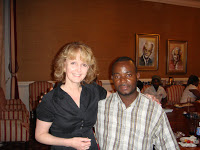
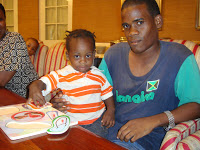 (Photos: Laurie and Lincoln; Aaron and Jordan; the patients share)
(Photos: Laurie and Lincoln; Aaron and Jordan; the patients share)
We also met Tyrone and Damian, brothers with inhibitors, both in their 20s, and their very powerful sister, who would stop at nothing to get better care for her brothers. We also met Beverly Parkinson and her husband, long time beneficiaries of Project SHARE. I felt like I was meeting a long lost relative as Beverly and I have been in contact for some many years to help her sons Kurt and Khaleel. They drove two and a half hours to attend!
The dinner was to be from 7 till 9, but carried on till 11 pm. It was as if someone had pierced a wound and let it drain. Out came frustration, anger, despair and pleas for help. Wayne, a strapping six foot-one man with hemophilia declared that this was the first time any of the patients had ever been together in one room. Ever! Shirley said she didn’t even know there were other patients with hemophilia.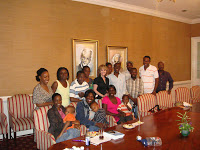
We took down names and email addresses, and they all planned to meet in the coming two weeks again, to begin to plan a support group. I told them that in the 14 years I had been doing this, this was the biggest surprise. I had never seen a group so poised to make changes! With a wry smile, one of the moms told me that Jamaica was one stop on the African slave trade route where they dropped off the trouble-making slaves before they arrived at Hispaniola. So, the country was founded by active and lively trouble-makers! I laughed and said that could be said of where I was from, Boston, too!
Thursday
Good luck followed us on this trip as we secured a meeting this morning with the Prime Minister. This is thanks to the persistent efforts of Juliet Hanlon, a Goodwill Ambassador with World of Hope International, UN ECOSOC, who has been so helpful to both our programs, Project SHARE and Save One Life. Prime Minister Bruce Golding gave us over 20 minutes of time, remarkable considering he is a head of state and extremely busy. He asked why we had visited Jamaica and listened intently as we described hemophilia its complications and how we plan to help Jamaica. I showed him my photos of children from other developing countries, and this always has a powerful effect on people. The photos show images you just don’t see in the US—grotesquely swollen joints, amputations, gangrene, disfigurement and pain. I brought a vial of factor with me and Derek explained how much is needed as a child grows and the cost. 
How could the government help? Perhaps for now, just awareness and maybe assisting when there is a critical case: a child in need of surgery, a shipment of factor detained in customs. I asked one big favor: a date for April 17, 2011 for World Hemophilia Day. A meeting with the patients. He happily agreed!
Next stop was UWI to see Dr. Wharfe, the effective head of the Jamaica Hemophilia Committee. Kerry-Ann accompanied us. Dr. Wharfe is an extremely kind and caring hematologist, who faces touch challenges. She expressed as well her frustrations at the lack of factor but also at the lack of patient involvement. We all sensed that was about to change this coming year. So we chatted about how to move forward, to make hemophilia in Jamaica better. 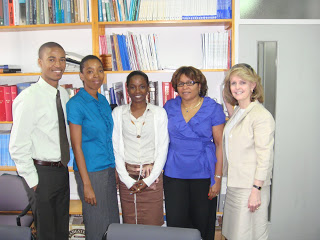
Later that afternoon, Derek, his mother Rita and I took a trip to Port Royal, and walked among the abandoned forts in the scorching sun, where cannons would fire upon enemy ships, and where pirates and buccaneers ran amok. We ate a delicious sea food dinner at Gloria’s, basking in the heat, before returning to our respective domiciles.
All in all, we had a positive trip that inspired hope to a group of isolated patients. Out next steps will be to hammer out a strategy moving forward, to bring the determined patients and the dedicated physicians together as a team, and to not lose the energetic momentum gained in three days.
Some background: Jamaica was discovered by Christopher Columbus in 1494, and was settled by the Spanish early in the 16th century. The native Arawak Indians were gradually exterminated, and Europeans imported African slaves. England seized control in 1655 and established plantations for sugar, cocoa, and coffee. Slavery was abolished in 1834, which freed a quarter million slaves. Jamaica gained full independence in 1962. The north part of the island is a popular and safe tourist destination. Kingston faces a high crime rate and is a major relay station for drug trafficking from South America.
Excellent Book I Just Read
Bananas: How the United Fruit Company Shaped the World by Peter Chapman
What do bananas have to do with nuclear weapons? Formed in March 1899, United Fruit with Minor Keith at the helm expanded into Honduras, Costa Rica, Panama, Colombia, Cuba, Jamaica and the Dominican Republic. Chapman makes a compelling case for how the founding of one of the first true multinational companies, United Fruit, which began with the simple importation of a few loads of bananas, became a global powerhouse, installing rulers in what became known as “banana republics,” and deposing rulers and anyone who stood in the way of profit. Banana exportation required railways and shipping, and Keith’s control grew, interlinking countries and later events. Jungles were trampled to make way for plantations and workers treated much like slaves. Chapman focuses on much of the evil wrought by United Fruit, and how much power was simply handed to them by corrupt or simply stupid leaders in Central America; and the US had a tarnished hand in helping it overthrow leaders and equip and train militia. It’s a fascinating review of history more than a study of business, but read it for both. In the end, United Fruit was its own worst enemy, and its greed, combined with disease and the genetics of bananas brought it down. Great book to read just before heading to Jamaica, as many Jamaicans were forced out of the banana business by UF. Four stars.
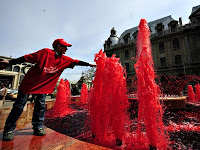
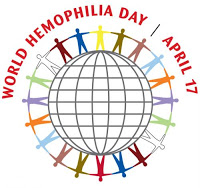
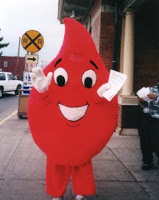 There are an estimated 300,000 people with hemophilia who get little or no treatment; most reside in developing countries. Some countries, actually a lot, get no factor at all. But we have small victories, and that too is what WHD is all about. 18-year-old Alfonso, from the Dominican Republic, is someone special to me. I’ve known him for over 10 years, since we started our first camp in the DR in 1999. He was shy, sweet and always smiling, no matter the pain. I used to tower over him, and now he towers over me! Last year, I enjoyed watching him mentor the younger boys as a counselor… and he hobbled about on a leg badly mangled by untreated bleeds.
There are an estimated 300,000 people with hemophilia who get little or no treatment; most reside in developing countries. Some countries, actually a lot, get no factor at all. But we have small victories, and that too is what WHD is all about. 18-year-old Alfonso, from the Dominican Republic, is someone special to me. I’ve known him for over 10 years, since we started our first camp in the DR in 1999. He was shy, sweet and always smiling, no matter the pain. I used to tower over him, and now he towers over me! Last year, I enjoyed watching him mentor the younger boys as a counselor… and he hobbled about on a leg badly mangled by untreated bleeds.